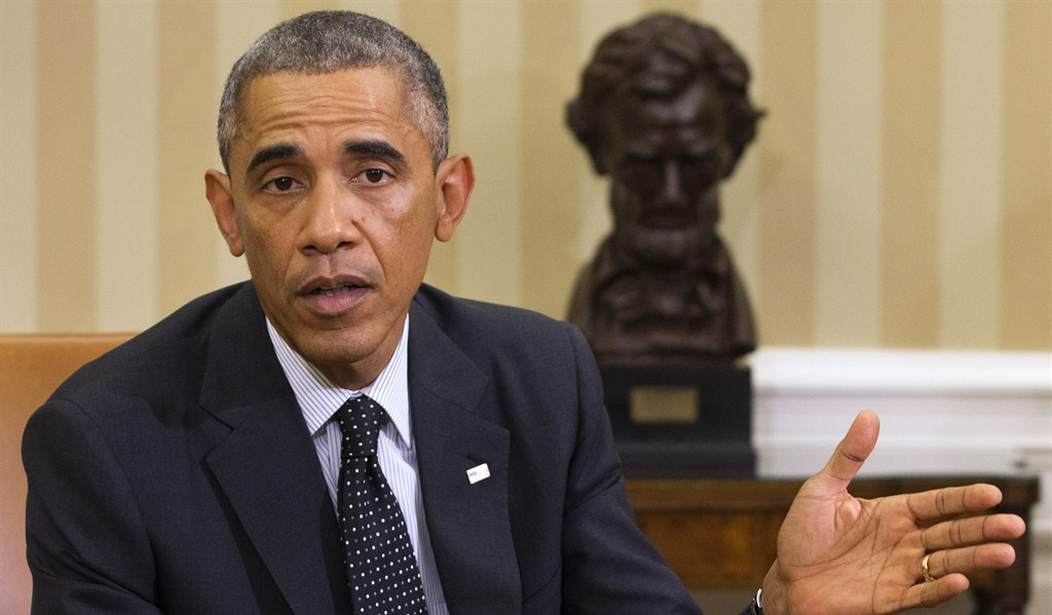Before I was 7, Gen. MacArthur was in an office in Tokyo overlooking the Imperial Palace, dictating to a shattered Japan.
In 1956, President Eisenhower, impressed by the autobahn he had seen in Hitler's Reich, ordered a U.S. Interstate Highway System constructed, tying America together, one of the great public works projects in all history.
Within a decade, the system was on its way to completion.
In 1961, John F. Kennedy said the United States, beaten into space by Nikita Khrushchev's Soviet Union, would put a man on the moon and return him to earth within the decade.
In July 1969, President Nixon, on the deck of the carrier Hornet, welcomed home Armstrong, Aldrin and Collins of Apollo 11.
What ever became of that America? What ever became of that can-do nation? What has happened to us?
This October saw the vaunted Center for Disease Control and Prevention fumbling over basic questions on how to protect Americans from an Ebola epidemic in three small countries of West Africa.
In September, an intruder with a knife climbed the White House fence, trotted across the North lawn, walked through the unlocked front door of the president's house, barreled over a female officer, and ran around the East Room before being tackled by a Secret Service agent going off duty. The president had just departed.
Days earlier, an armed security guard in Atlanta with a violent criminal past was allowed by Secret Service to ride an elevator with Barack Obama.
Recommended
Last summer came reports that 60,000 children and young people from Central America had walked across the border into the United States, overwhelming our Border Patrol.
Last spring, we learned that sick and suffering vets were deliberately made to wait months for appointments to see VA doctors, and dozens may have died during the wait.
Earlier, the rollout of Obamacare, years in preparation, became a national joke and a metaphor for government incompetence.
Under President Bush came Katrina, where 30,000 residents of New Orleans were stranded for days behind a pool of stagnant water after a hurricane. The city and state couldn't handle it.
Yet, during five days in 1940, 350,000 British troops, besieged at Dunkirk, were rescued from across the Channel by their countrymen in boats and yachts under the guns of the Wehrmacht and Luftwaffe.
Such events have contributed to a collapse of confidence among Americans in the competency of their leaders and their government.
Large majorities now believe America is heading downhill, that the future will not be as good as the past, that we are going in the wrong direction. Malaise pervades the republic.
And there are larger reasons for these sentiments.
Our recent wars, in Afghanistan, Iraq and Libya, all seem to have left them and us worse off. In fighting our new war in Iraq and Syria we have neither a credible strategy nor sufficient troops to prevail against the Islamic State.
Already, Americans are asking: Why is this our war?
Since the mid-1970s, the real wages of working Americans have stagnated as we have run uninterrupted trade deficits totaling more than $10 trillion. Under Obama the national debt has surpassed the Gross Domestic Product.
Our manufacturing base has been hollowed out with Detroit as Exhibit A. We outsource our future by borrowing from China to buy from China.
We borrow from Japan and Europe to defend Japan and Europe, though World War II has been over for 70 years.
FedEx tracks with precision millions of packages a day. But the U.S. government cannot locate and send back 12 million illegal aliens.
Thirty years after a Reagan amnesty that carried a commitment to secure our borders, Obama is preparing an executive amnesty for untold millions of illegals, as soon as the election is over. And still the borders are not secure.
If government is conceded a role in anything, it is in building roads, bridges, highways and airports, and in running public schools.
Yet our infrastructure is crumbling, U.S. children fall lower and lower in international competition, and the racial divide in academic performances has never closed, despite an investment of trillions in education over half a century. Even Joe Biden calls LaGuardia a "Third World" airport.
Many private institutions are succeeding splendidly. But our public institutions, save the military, seem to be broadly failing.
Congress is gridlocked. The president is seen as a dithering incompetent. The Supreme Court is polarized irreparably.
Our political, racial and cultural clashes, traceable to conflicts created by the revolutions of the 1960s, are daily magnified and exacerbated by cable TV, the Internet and social media.
"Things fall apart; the centre cannot hold; Mere anarchy is loosed upon the world," wrote the poet Yeats.
Clare Luce put is another way. In this world, she said, there are two kinds of people -- optimists and pessimists. "The pessimists are better informed."
























Join the conversation as a VIP Member